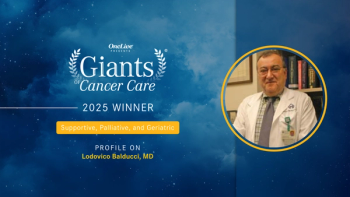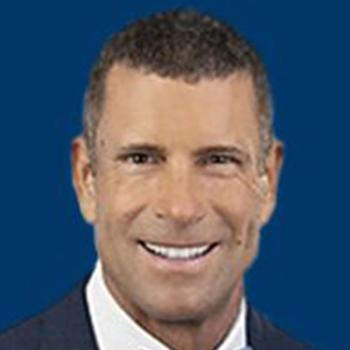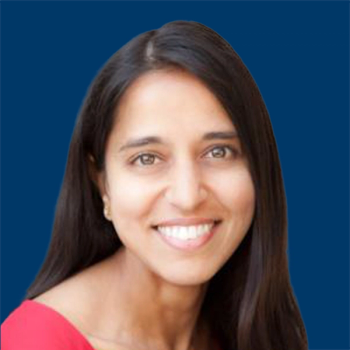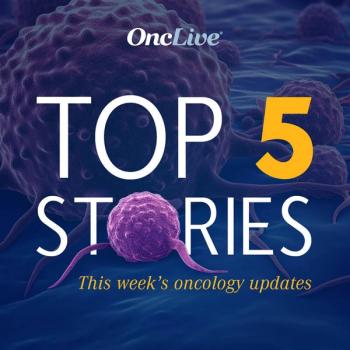
APL Treatment Moving Forward
Transcript:Elihu Estey, MD: A major evolution in the therapy of APL will be the development of oral arsenic, which I think is being done in Hong Kong. And then, basically, you will have a regimen that will be purely oral. ATRA is obviously given by mouth and arsenic would be given by mouth, and so now you will have a perfectly oral regimen for treatment of APL. I think that will be the major change of therapy. And I think the other change will be that as the effectiveness of the therapy of ATRA/arsenic for at least low-risk APL becomes more obvious, there will be less need for this monitoring that goes on now. There’s an old saying that you don’t want to do a pregnancy test on a man. It’s the same idea, why would you want to do all this monitoring if the disease is not going to recur?
Ehab Atallah, MD: The biggest challenge we have in APL now is diagnosing patients early and getting them to treatment early. As we mentioned before, the chances for cure are very high, and most patients who are not cured actually die in the first month or so of their diagnosis because of bleeding complications. Getting to those patients earlier and giving them adequate treatment is probably our best strategy to improve survival in patients with APL. In addition, currently, there are studies that are ongoing with an oral arsenic formulation that would be a lot easier for our patients to take than the intravenous daily infusion.
Elihu Estey, MD: These days, ATRA and arsenic are often referred to as a paradigm of bench-to-bedside research, but the truth is a bit different. These drugs go back much further in Chinese medicine, but they were first published from China in the 1980s. And I think it’s fair to say that they were greeted with disbelief. At that time, China was not the China today. It was really almost a Third World country, and people said these results were too good to be true. They don’t know what APL is. And it wasn’t until the results were repeated in the West that people began to see that, in fact, the Chinese were correct. So, obviously, if it were a paradigm of bench-to-bedside research, then they wouldn’t have been greeted with the skepticism. It would have been, “Oh, these people are so brilliant. Obviously, it’s going to work in the clinic, they’re geniuses.” But, in fact, the attitude was they’re probably wrong, this will never work in the clinic, but it did.
And I think the lesson is that often times, research goes in the opposite direction. Rather than going from bench-to-bedside, it goes from bedside-to-bench, and there are other examples, as well, that we could give if you want. But, the point is—and, of course, my interest is clinical research—that I think it’s a mistake for funding to be given exclusively for laboratory-based research. There are many interesting clinical questions that arise, not only regarding treatment, but other aspects of care.
So, if I can digress, for example, for many years, people with AML were told they had to eat a neutropenic diet, which basically means they can’t eat fresh fruits and vegetables. Well, in Houston, we did a study that had no laboratory basis at all where we randomized people between a neutropenic diet and a regular diet, and there was absolutely no difference. That really makes a difference in people’s lives, people who like fresh fruits. And, likewise, even today, the standard treatment for AML is people stay in the hospital for 1 month. But, that’s something else that we did research on, and it turns out there’s absolutely no reason for them to do that. And so, they can spend a lot more time out of the hospital. These studies are not en vogue because they’re not immunotherapy, they’re not molecular genetics, and they’re not targeted therapy. But, the way they influence the way practice is done is indisputable. As I said, I’m certainly not necessarily disinterested, but I think that it’s really sad that so little funding is spent by the NCI on these kind of endeavors that are really very important, and probably more likely to be successful than many targeted therapy trials.
Transcript Edited for Clarity




































